You are using an out of date browser. It may not display this or other websites correctly.
You should upgrade or use an alternative browser.
You should upgrade or use an alternative browser.
Trans Women in Women's Sports: Yea or Nay?
- Thread starter CaptRenault
- Start date
- Latest activity Latest activity:
- Status
- Not open for further replies.
DownEastDeac
Well-known member
- Joined
- May 3, 2011
- Messages
- 2,904
- Reaction score
- 704
True, but if the Holes somehow get locked in to not leaving NCSU behind, the draw of the UNC brand in general and speicfically the location and size of the NC market might be enough to get them in to a new super league.The Big 10 and the SEC have less than no interest in NC State.
CaptRenault
Well-known member
It's hard to know the significance of the NLRB's ruling that Dartmouth basketball players can vote to unionize. It could be just one more hole in the dike or it could be the hole that finally causes the dam to break. But one thing is sure: more BIG changes are coming in college sports, sometime between later today and a few years down the road. I expect the changes to happen sooner rather than later.
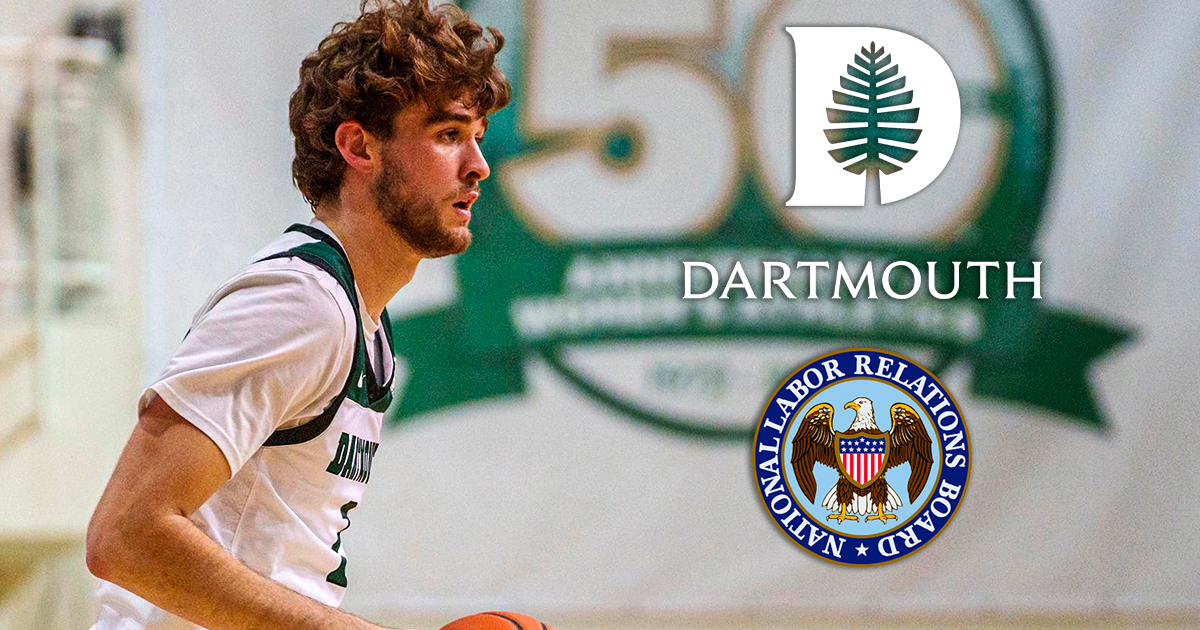
 www.on3.com
www.on3.com

What NLRB decision on Dartmouth basketball means for college sports
As Dartmouth basketball players now prepare for a union election, what does NLRB decision mean for college sports and the NCAA?
As Dartmouth basketball players and coaches finished up practice around 5 p.m. ET on Monday night, news had already started to spread that Big Green players are now considered university employees.
The news sent ripples across the college sports landscape. Dartmouth players had not received a warning, instead being notified by headlines and texts on their phones. A ruling from the National Labor Relations Board (NLRB) regional director could have come around Thanksgiving or Christmas. Instead, it came down Monday with nearly no warning.
The decision could serve as the first domino that leads to an employee model in college sports. The NLRB decision was not a stunning surprise, as the NLRB general counsel has openly talked about her beliefs that college athletes are employees. The National Labor Relations Board enforces U.S. labor law.
Plus, the NLRB regional director ruled Dartmouth athletes have the right to hold a union election. A formal date has not been set. Dartmouth is expected to appeal.
But Monday’s decision is viewed as a sign of a new era for college sports.
“I don’t think many people expected Dartmouth men’s basketball players, who play in the Ivy League and do not receive athletic scholarships, to be the next wave of athletes who were classified as employees,” Tulane sports law professor Gabe Feldman said. “This is one of the lessons we’ve all learned from the Northwestern case is that this is still a preliminary decision. It’s subject not only to appeal to the full NLRB. But then also could be appealed in federal court. So, we still have a long way to go.
“But obviously, this is another significant step toward college athlete unionization. More broadly, college athletes being recognized as employees. Even more broadly than that, college athletes having a true say in their compensation.”
Dartmouth player representatives Cade Haskins and Romeo Myrthil called the ruling “a significant step forward for college athletes” in a statement released Monday night. They also announced they plan to form the Ivy League Players Association for basketball players across the league.
Haskins, Myrthil and the rest of their Dartmouth teammates are not in unchartered water. Roughly 10 years ago, Northwestern football players received the same ruling at the regional level. The decision was later overturned in 2015 at the national level because the NLRB only applies to the private sector. The NLRB ruled denied Northwestern employee status because the school was in the Big Ten, a conference filled with mostly state schools.
A decade later, the tenor of the national conversation has changed.
The NCAA is facing multiple legal pressures that would deliver a severe blow to the enterprise. And Dartmouth is a private institution in a league filled with private universities.
“I think there are two things to watch for from this ruling. No. 1, what do the players actually vote?” said Jason Stahl, the founder of the College Football Players Association. “When is the election date set? What do they then do when they go and actually vote whether they want a union or not? There are many union elections where the election gets called for. Then people go in with enough cards to call for the election. And then the union doesn’t actually get its votes down. It’s a no vote.
“We have to wait because there’s going be heavy pressure on these guys now to vote both ways.”
The NLRB decision classifying Dartmouth basketball players as employees of the institution is a test case, in a sense. While the appeal process remains to be seen, Dartmouth players will hold a union election. If the vote decides on Dartmouth basketball players forming a union, the team will have the opportunity to sit down and collectively bargain with the institution.
Many always expected this to play out at the highest levels of college sports, where the most dollars are being spent on football and basketball programs. But the NLRB decision on Dartmouth could show that any college athlete is an employee, Feldman says.
“I think it makes it difficult for schools to argue that any athletes are not employees either seems to open the door for almost all athletes of all divisions to argue their employees,” the sports law professor said. “And I think it certainly strengthens the case at the higher levels, where they are exercising more control, there is more pressure, there is greater travel and there are more benefits and compensation headed their way.”
HOW MANY LEGAL THREATS IS NCAA FACING?
The Dartmouth ruling could lead more athletes across the nation to take action to become classified as employees. The process could move faster, too, since the New England regional director already made a decision.
Another employment scenario is playing out on the West Coast, as the NLRB Los Angeles regional office alleges USC, the Pac-12 Conference and the NCAA are joint employees of USC’s football and men’s and women’s basketball players. The hearing will resume later this month.
In addition, plaintiffs in the Johnson v. NCAA case, former Villanova football player Trey Johnson and other Division I athletes are asking that athletes be deemed employees subject to the Fair Labor Standards Act. That requires covered employees to be paid minimum wage and overtime pay, much like non-athletes at colleges who participate in work-study programs.
Will judges protect NCAA’s amateur model?
Time appears to be ticking for the NCAA.
President Charlie Baker has tried to lobby Congress for federal relief focused on NIL restrictions. But with the mounting pressure of an employment model, Baker could pursue lawmakers to write legislation that college athletes are not employees. Since 2020, more than 10 hearings have been held in Washington, D.C.. Plus, no legislation has even made it to a vote.
Baker is also working with conference commissioners and stakeholders on his Project D-I plan, which would create a new subdivision of college sports. The SEC and Big Ten announced a joint advisory committee last week. It’s a sign that the two most powerful conferences could be taking their fates into their own hands.
The NLRB regional director’s decision on Dartmouth could be a telling sign that more and more judges do not want to protect the NCAA’s amateur model.
“Ultimately, the NCAA has received deference for the last several decades, because courts wanted to protect the uniqueness of college sports and wanted to protect amateurism, wanted to protect the academic ideals,” Feldman said. “There now seem to be more and more judges who are less willing to give that deference and don’t see college sports as different.”
MichDeac25
Well-known member
The dam is fully broken. Pitino is out there calling for the big leagues to have a $2M per team annual salary cap for college bball based on this ruling. This is why the leagues have been all jockeying for conference position. Certain conferences will pay players directly and it will be more than than the other leagues.
stonevilleicetea
Well-known member
PhDeac
PM a mod to cement your internet status forever
- Joined
- Mar 16, 2011
- Messages
- 155,316
- Reaction score
- 22,324
Carson Beck knows that once his NFL (and United Football League and CFL and Arena League) dreams fall short, he can get good value on a trade-in at Stetson Bennett Hyundai of Athens.
CaptRenault
Well-known member
Here's a good column from the sports business website, Sportico, explaining why (at least some) college athletes could/should be considered employees. The column is from mid-December so it was written before the recent NLRB decision about Dartmouth basketball players. Also, remember that the Dartmouth decision is significant but not definitive. We will find out over the next year or so what it means for the future of college sports.
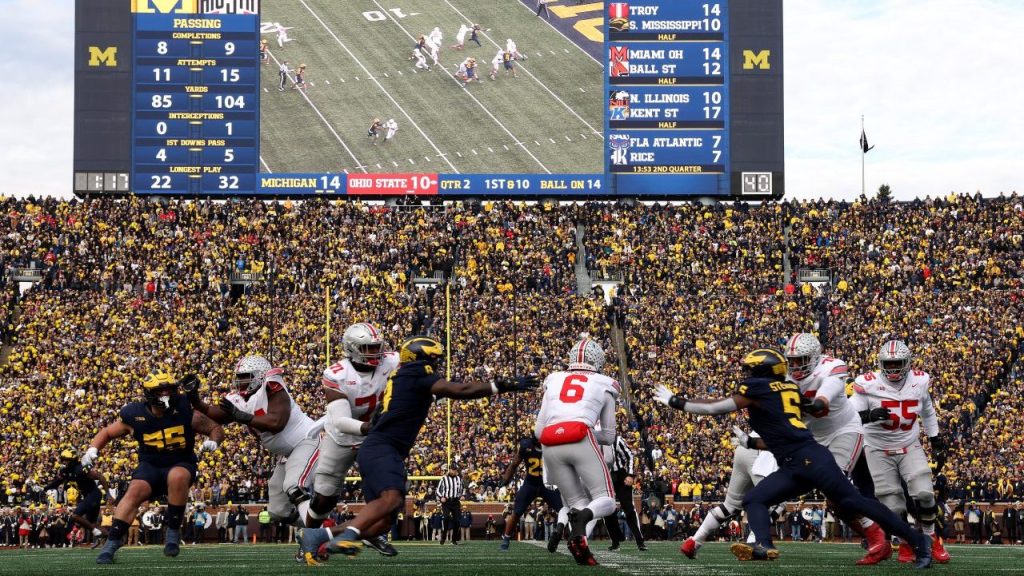
 www.sportico.com
www.sportico.com

College Athletes as Employees: Answering 25 Key Questions
The rights of college athletes to earn money have undergone massive changes in the 2020s. In 2021, the NCAA permitted athletes to use a right they already had, the right of publicit…
The rights of college athletes to earn money have undergone massive changes in the 2020s.
In 2021, the NCAA permitted athletes to use a right they already had, the right of publicity, to sign endorsement, sponsorship, influencing and other name, image and likeness deals without running afoul of amateurism rules. It only did so after states passed NIL statutes that made it illegal for the NCAA and its members to block NIL.
The next major change will be the recognition of college athletes as employees of their schools, and possibly also their conference and the NCAA. There are several ways this recognition could occur. Once college athletes are deemed employees, some will form unions that negotiate collective bargaining agreements. It will be a new era in college sports.
But getting there won’t be easy or straightforward. Sportico answers 25 key questions.
1. Why would college students who play sports be considered employees?
College athletes function as the labor force for college sports, a multibillion-dollar industry. For some college athletes, their recruitment, their enrollment and how they spend their time in school are primarily centered on advancing an athletics program.
Many of these athletes say they spend more than 40 hours per week focused on their sport, despite NCAA and conference limits. Some are also nudged if not effectively forced to take courses that comply with their responsibilities as athletes.
These factors vary by school and sport; for example, football and basketball players at Power Five schools more closely resemble employees, while other athletes lead a more average “student” life. Still, under applicable labor and employment law tests, some college athletes resemble employees. For more, please read The Collegiate Employee-Athlete.
2. But aren’t they student-athletes? Doesn’t that mean they’re not employees?
The term “student-athlete” is a moniker devised by the NCAA and its members; it is not the “law.” It was originally designed to assist schools in defeating workers compensation cases involving injured athletes. Employment recognition is about what is occurring, not labels. Calling an employee an “intern”, “volunteer” or “student-athlete” doesn’t change the employee’s rights...
CaptRenault
Well-known member
A sports columnist for the Knoxville News speculates about the significance of the recent "alliance" formed by the B1G and the SEC. Will it help gain control the BIG changes that are happening in college sports or is it just another futile to control changes that are being forced on college sports by the courts and market forces?
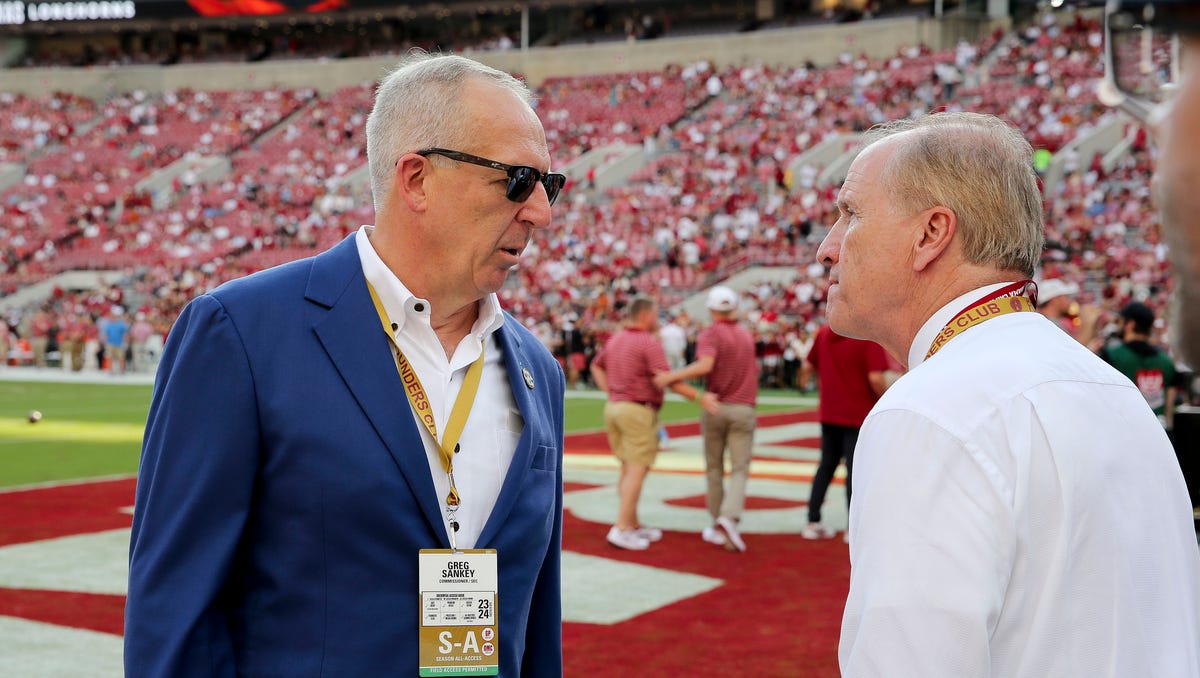
 www.knoxnews.com
www.knoxnews.com
Could SEC, Big Ten leave NCAA? Here are 4 more realistic outcomes of new alliance | Toppmeyer
The SEC and Big Ten are not like other Division I conferences, and they intend to flex that muscle with their new alliance. But, in what areas?
...Last week, the SEC and Big Ten announced that university officials from those two conferences will form an advisory group to chart a future for college sports. These “Power 2” conferences are locking arms after the NCAA pleaded – unsuccessfully – for federal help to navigate NIL. Antitrust lawsuits mount against college sports’ governing body.
College sports has reached an inflection point...
It’s debatable whether this alliance will achieve substantial evolution for college sports, but one thing is evident: The SEC and Big Ten, as super-conferences that collect the biggest media-rights profits and house some of college sports' most powerful brands, are not like other Division I conferences, and they intend to flex that muscle.
What could this SEC/Big Ten union produce? A full-on secession from the NCAA? Probably not. Here are a few likelier possibilities:
...This existing playoff contract is in place through the 2025 season. The playoff's future after that remains uncertain. With the Pac-12 becoming the Pac-2, Sankey wants to reduce the number of automatic bids from six to five and increase the number of at-large bids from six to seven.
...I suspect the “Power 2” would prefer to continue in a playoff in which some other conferences have at least nominal access, but where most of the bids and a high percentage of the revenue flow to the “Power 2.”
...Creating and enforcing NIL guardrails and managing athlete transfer free agency remains a lingering headache for the NCAA. For years, the NCAA sought – but didn't obtain – congressional relief in the form of federal NIL legislation or antitrust exemption.
To put it simply, the NCAA failed. Repeatedly.
In the absence of federal protection, the NCAA is repeatedly getting sued. Recently, the attorneys general of Tennessee and Virginia sued the NCAA in an ongoing antitrust case that alleges the NCAA’s meager NIL guidelines run afoul of the Sherman Antitrust Act.
Maybe, Big Ten and SEC leaders will decide they’re done waiting on the NCAA or Congress to find a solution that may never come, and they’ll concoct one of their own.
Collective bargaining and sharing revenues with athletes are the elephant in the room that, to this point, no one has wanted to approach. A collective bargaining agreement could be the magic bullet that quiets the issues of NIL, transfers and antitrust lawsuits....
Sankey previously co-chaired the NCAA Division I transformation committee. That committee led an NCAA modernization effort, produced a 48-page report that ranged in topic from athletes’ physical and mental well-being to NCAA championships experience, and spearheaded some evolution. That transformation committee didn’t touch the key issues of NIL, collective bargaining or revenue sharing.
Perhaps, this “Power 2” union offers a renewed swing on those fronts. Or, maybe not.
Will this SEC/B1G group tackle big-ticket issues and put these “Power 2” conferences on a path to revenue sharing and collective bargaining to stem the barrage of antitrust lawsuits, or will they waste time with minor maneuvers that don’t address the key issues facing college sports?
CaptRenault
Well-known member
As I have noted a couple times, I am curious to hear the opinion of AD Currie about all the changes that have been happening to college sports. I haven't been able to find much and I think that a reporter who covers WF sports should ask Currie to share his thoughts.
In the recent article about Wake in the Sports Business Journal that inspectah linked to in the conference expansion thread, he seems confident that Wake can and will survive with a seat at the big boy table.
I hope Currie's optimism about the future of Wake sports is justified, but it would be interesting to hear him share his thoughts more in depth.
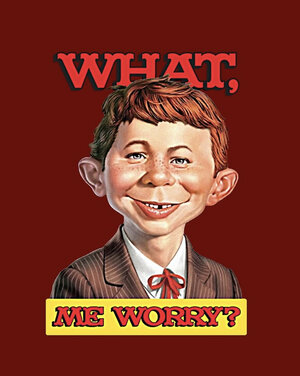
In the recent article about Wake in the Sports Business Journal that inspectah linked to in the conference expansion thread, he seems confident that Wake can and will survive with a seat at the big boy table.
...For now, the NIL free-for-all continues, and Currie keeps on smiling. Next year, the ACC will add Cal, Stanford and SMU, giving it schools in the San Francisco Bay Area and Dallas-Fort Worth, markets that he’s certain will boost Wake’s national profile. “There’s people who don’t know where Wake Forest is, but they’re going to learn,” he says. “Cal-Berkeley’s coming in here next year, and we’ll have a great scene in California when we play at Stanford. That will be important for our entire university.” So will a new initiative with Advocate Health that will put Wake Forest’s name on 69 hospitals in seven states. The eventual goal, says Dr. David Zaas, the president of the Wake Forest Health System, is to get the brand “on par with the Mayo and Cleveland Clinics.”
Even before NIL, maintaining a sustainable athletic program was a challenge for Wake Forest. “This is just a different kind of threat,” Currie says. Since joining the ACC as a charter member in 1953, the university has managed to maintain what he describes as “that place at the table.” With all the tumult college that sports has experienced, the explosion in NIL payments and the creation of a transfer portal and ongoing conference realignment coupled with the erosion of television ratings, nothing has challenged his assumption that its position is secure.
“We’ve got this,” Currie insists. “If the music stops, so to speak, we’ve got a chair.”
I hope Currie's optimism about the future of Wake sports is justified, but it would be interesting to hear him share his thoughts more in depth.

CaptRenault
Well-known member
The latest court fight that the NCAA is doomed to lose (at least in the long run, if not in the short run) revolves around the NCAA's current NIL rules that limit or prevent a school from using NIL as a recruiting tool. The state of Tennessee (along with the state of Virginia) is suing the NCAA to stop it from punishing the University of Tennessee for NIL rule violations during the recruitment of 5* QB Nico Iamaleava. The NCAA maintains that you can pay players after they arrive but not before they arrive.)
Tennessean columnist Gentry Estes explains:
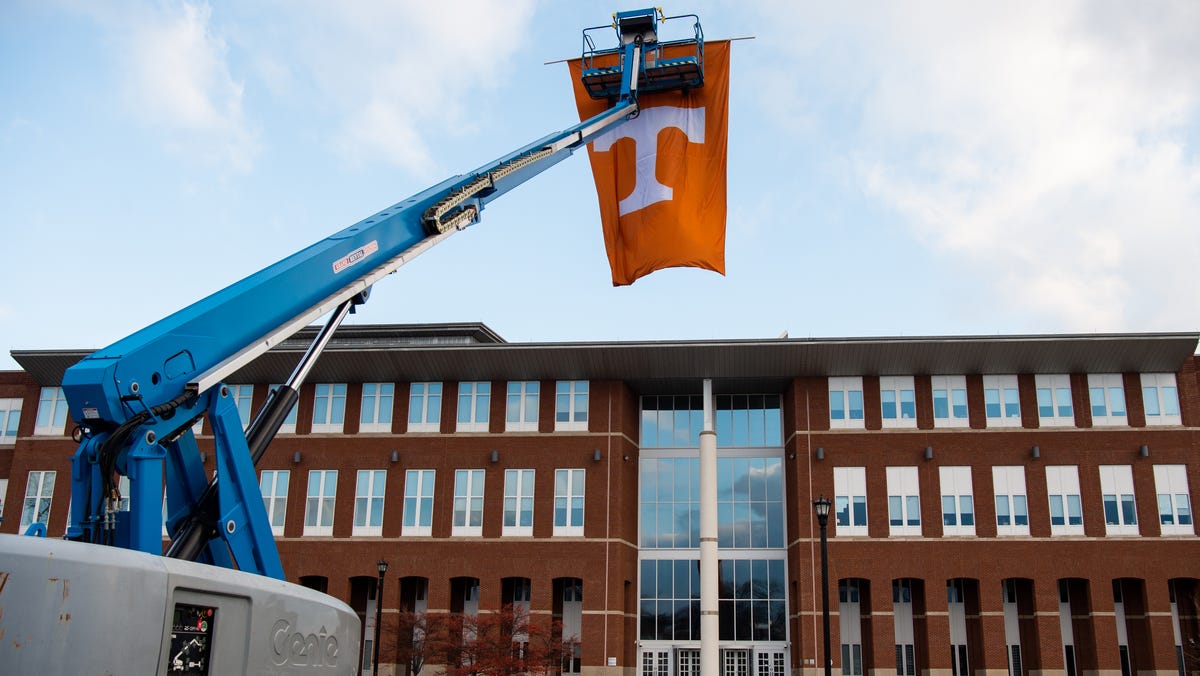
 www.tennessean.com
www.tennessean.com
Tennessean columnist Gentry Estes explains:

NCAA picked a pointless fight with Tennessee when it needs real solutions | Estes
I’m already tired of the University of Tennessee’s legal wrangling with the NCAA. Real solutions are needed. Instead, I'm left rolling my eyes .
Amateurism in college sports is dead. Has been for a while.
Someone, evidently, still needs to tell the NCAA.
Your move, Clifton Corker.
The latest example of college sports’ inability to manage itself is that Corker, a federal judge in Greeneville, Tennessee, is having to do it for them. He’s deciding whether the NCAA will be allowed to enforce its rules regarding the use of name, image and likeness benefits in recruiting against the University of Tennessee or other schools.
Even if Corker sides with the NCAA for now, it’ll likely be a temporary victory. Because, as a general rule, courtrooms in a capitalist society won't be OK with non-negotiated restrictions on what their citizens can earn.
Collective bargaining should be the starting point for the NCAA's efforts, rather than pointless legal fights to delay outcomes that have long felt preordained. NCAA leaders need real solutions. They won't find any in Greeneville.
But there they were, and here I am, looking east and rolling my eyes....
What started with Tennessee being investigated for possible allegations – standard NCAA enforcement stuff – has become something far more wide-reaching than whether quarterback Nico Iamaleava is going to be eligible this fall or the Vols can go to a bowl game.
For UT, those reasons were why Tuesday's hearing was important in the short term. But if you're the NCAA, what's going to get resolved in the long term? Does anyone think other schools would be content to sit there and suffer what has befallen Tennessee?
For other teams’ fans, Tennessee's situation has placed them in the odd position of supporting the NCAA toughening the rules on those scoundrels in Knoxville, but you know, don’t enforce them in my direction. They'd be pretty sure, after all, that their school’s collective has been recruiting with NIL, too, since collectives were essentially created for that purpose.
Everyone thought it was legal. Because it was legal...
CaptRenault
Well-known member
Ross Dellenger of Yahoo Sports on the challenges of being a Group of 5 football coach during the new age of transfer portal and NIL:
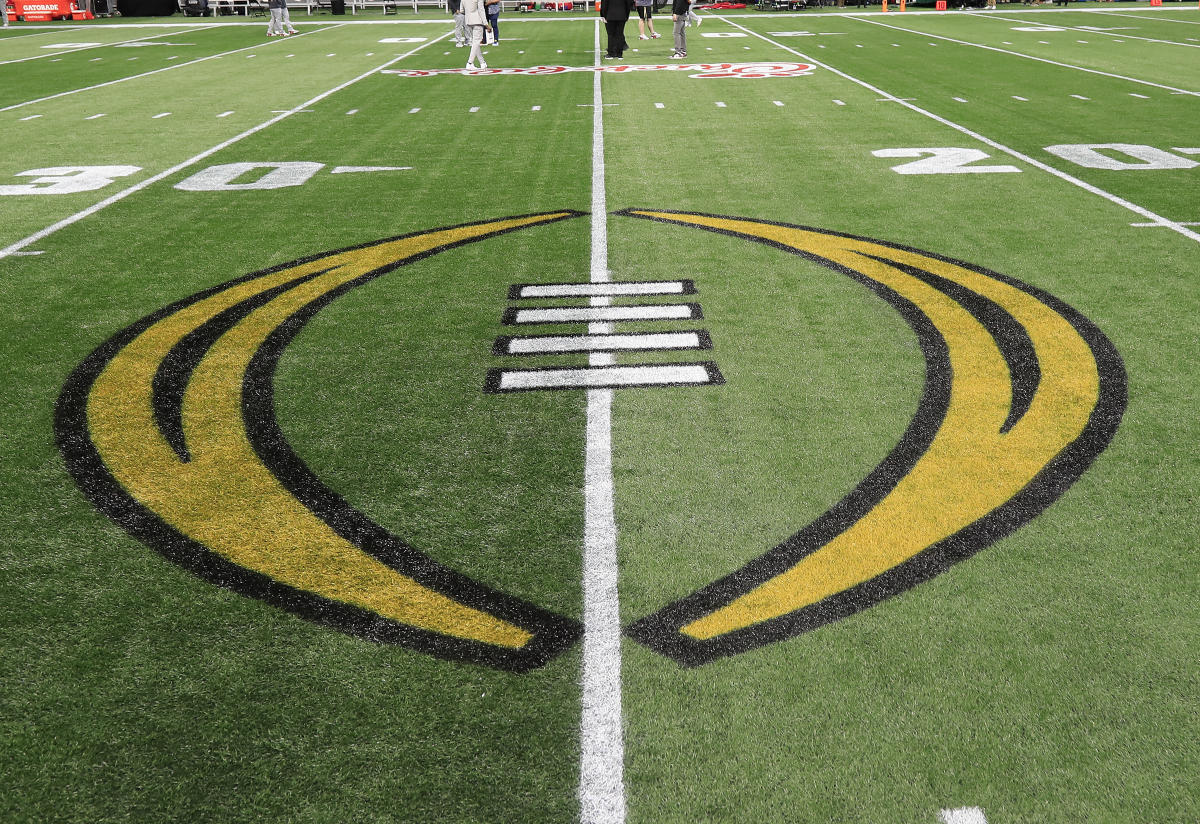
 sports.yahoo.com
sports.yahoo.com
As college football's elite is engulfed in a power struggle, G5 left just trying to survive: 'We are a farm system'
The gap between haves and have-nots is widening, and the Group of Five can't keep up.
This offseason, Will Hall will be a football coach for just a few hours a day. He’ll attend morning winter workouts and, once spring practice starts, lead his Southern Miss football team on the field.
Aside from those instances, Hall is a fundraiser. On a random Wednesday in February, Hall, the coach, starts his day at 7 a.m. observing workouts. By 10 a.m., Hall, the fundraiser, is meeting with donors in his office. At 11, he jumps in his car for the 90-minute drive to the Mississippi Gulf Coast, where more donor meetings are held at 1:30 and then 3. His goal is to meet with 12 donors a week.
“I do zero football anymore. Zero football in my life right now,” Hall said. “I do culture and recruiting.
“Most of my day is spent all across the southern United States raising money,” he said before pausing, “for NIL.”
Hall’s offseason is a window into life these days at the Group of Five level — the lower-resourced bottom half of FBS where tight budgets and small staffs have coaches pushing aside football for fundraising. Gathering donor dollars for name, image and likeness (NIL) deals gives schools the ability to recruit players and, more importantly at this level, retain them.
Plenty of Power Five coaches are operating in a similar capacity as Hall. But in the Group of Five, NIL fundraising isn’t only more arduous — smaller donor bases, fewer school resources – but it is much more urgent. G5 coaches are scrambling to amass enough dollars to ward off Power Five poachers.
Already historically disadvantaged from brand and budget perspectives, programs in the Group of Five are now struggling to compete with their bigger brothers in compensating players. Power Five programs, equipped with on average five times more NIL cash, are outbidding Group of Five schools to take their best players, pillaging rosters of returning all-conference athletes and transforming FBS football’s lower subdivision into a veritable minor league.
“We are a farm system,” said Liberty coach Jamey Chadwell...
CaptRenault
Well-known member
The first sentence of this article about today's court decision on the NCAA's rules on NIL says it all.
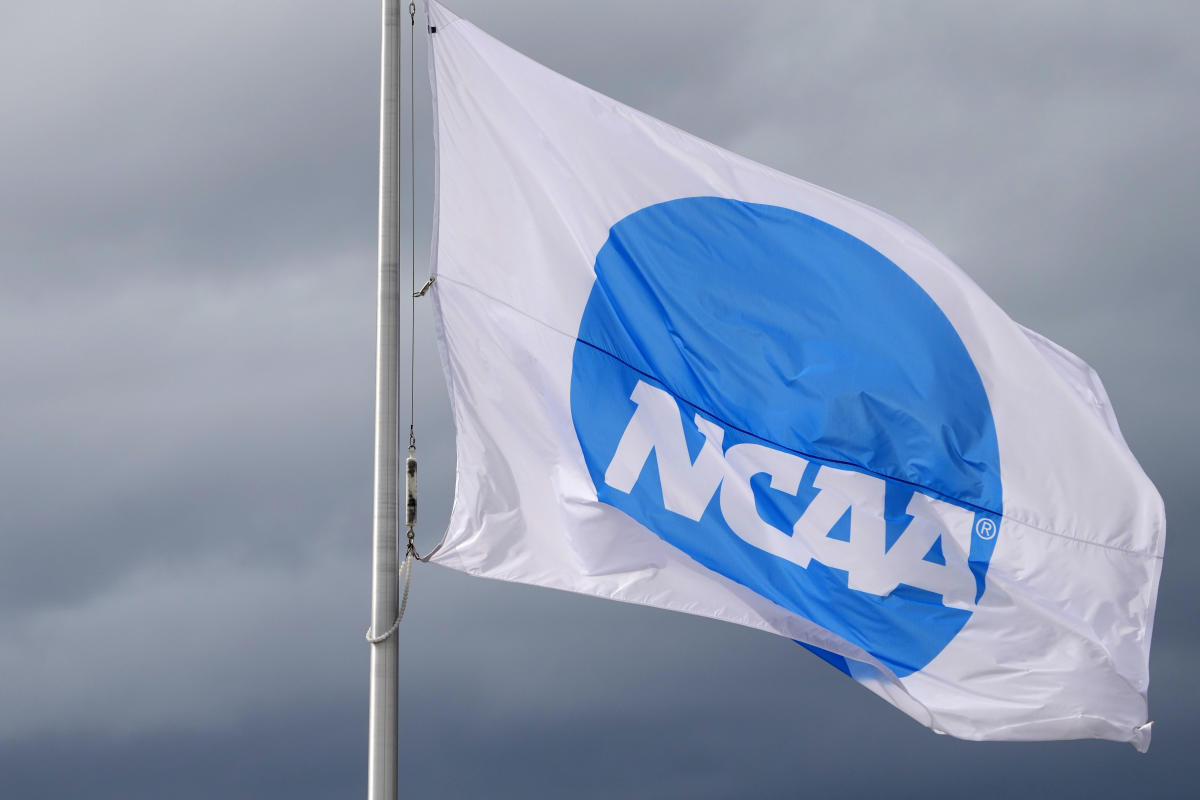
 sports.yahoo.com
sports.yahoo.com
In other news:
NCAA can no longer enforce NIL rules after federal judge grants injunction
The NIL world just became even more of a free-for-all.
The NCAA has lost the authority to enforce any rules on name, image and likeness compensation for student-athletes, for now and potentially for good.
Federal judge Clifton Corker granted a preliminary injunction suspending the NCAA's NIL rules as part of the lawsuit brought by the attorneys general of Tennessee and Virginia against the organization, according to Adam Sparks of the Knoxville News Sentinel. The decision will apply nationwide.
Corker found that the current NIL rules caused irreparable damages to student-athletes and the NCAA's ban on using NIL money as recruiting inducements "likely violates federal antitrust law." From the News Sentinel:
"(W)ithout the give and take of a free market, student-athletes simply have no knowledge of their true NIL value," Corker wrote. "It is this suppression of negotiating leverage and the consequential lack of knowledge that harms student-athletes."
The decision is a disaster for the NCAA, which has been trying to grasp any authority it can in the landscape created by the 2021 Supreme Court ruling opening the door for NIL compensation.
College athletes are now free to directly negotiate their compensation and sign NIL contracts before enrolling at a school and will be able to do so until at least the end of the court case. The injunction alone is a bad omen for the NCAA's chances, and is a direct blowback from its investigation into the Tennessee football program for alleged breaches of NIL rules.
The Tennessee and Virginia AGs filed their lawsuit one day after that investigation was announced...
The NCAA's legal situation remains dire for reasons beyond this case as well, as it's fighting on a number of legal fronts, including the Dartmouth unionization effort that could see other schools' student-athletes organize a lawsuit that could open the door to unlimited transfers. And that's to say nothing of the looming threat of the Big Ten and SEC breaking away.
In other news:
Last edited:
CaptRenault
Well-known member
In response to Friday's court ruling that disallowed the NCAA's rules on NIL (The injunction leaves the NCAA powerless to govern NIL in college sports.), NCAA president Charlie Baker urged the members to chill. He also said he would "...convene the Division I Board of Directors." Uh, aren't those the same people who designed the system that is completely falling apart in the face of lawsuits and court decisions? 
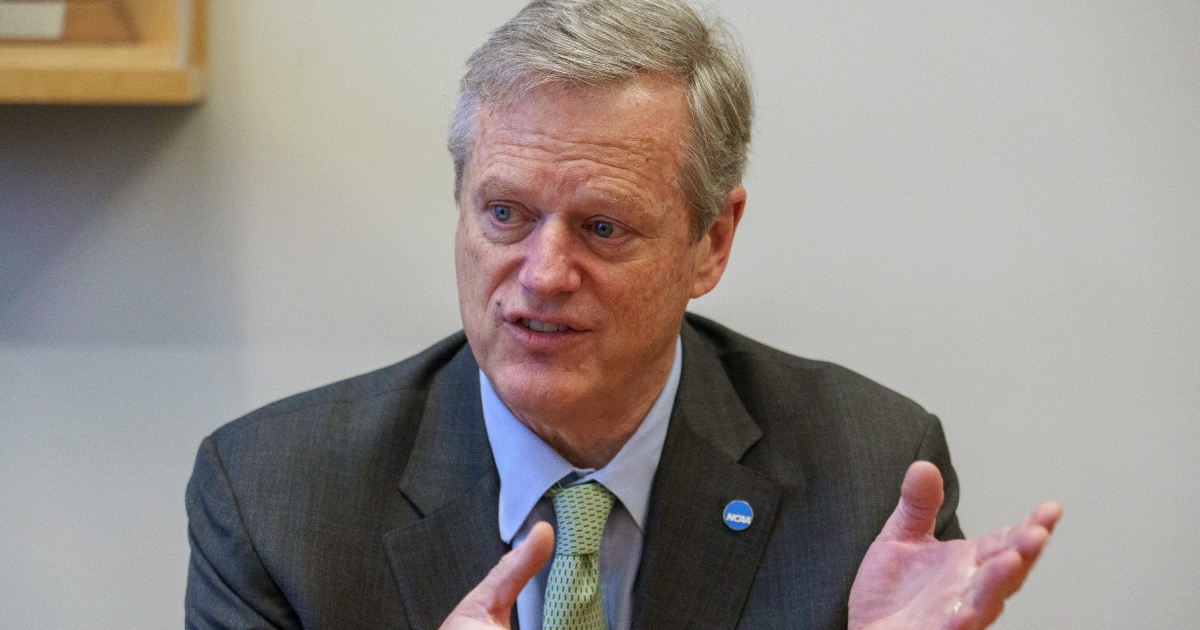
 www.on3.com
www.on3.com

Charlie Baker issues letter to NCAA membership following NIL preliminary injunction decision
In the wake of the preliminary injunction halting the NCAA's power to prohibit NIL negotiations, Charlie Baker has issued a letter to his membership.
In the wake of the preliminary injunction halting the NCAA’s power to prohibit recruits and transfer portal athletes from negotiating their NIL, President Charlie Baker has issued a letter to his membership.
In a memo obtained by On3 on Monday, Baker described the questions he received over the weekend asking what Judge Clifton L. Corker’s ruling means. In light of the actions, Baker announced he plans to convene the Division I Board of Directors and the Board of Governors “to discuss next steps.” The lawsuit led by the attorneys general of Tennessee and Virginia was filed last month, the day after news broke the NCAA was investigating Tennessee athletics for multiple alleged NIL violations.
While no direct guidance or ruling is included in the one-page letter, Baker wrote that delivering accurate information is essential. One source described the letter to On3 as a “wait and see” email...
In light of the actions, Baker announced he plans to convene the Division I Board of Directors and the Board of Governors “to discuss next steps...”
CaptRenault
Well-known member
What does last week's court injunction on the NCAA's NIL rules mean? In ONE word: NOW IT'S LEGAL. Uh, I mean, that's what it means in three words. 
In response to the court's ruling, Wake Forest AD John Currie said that he is against court storming.
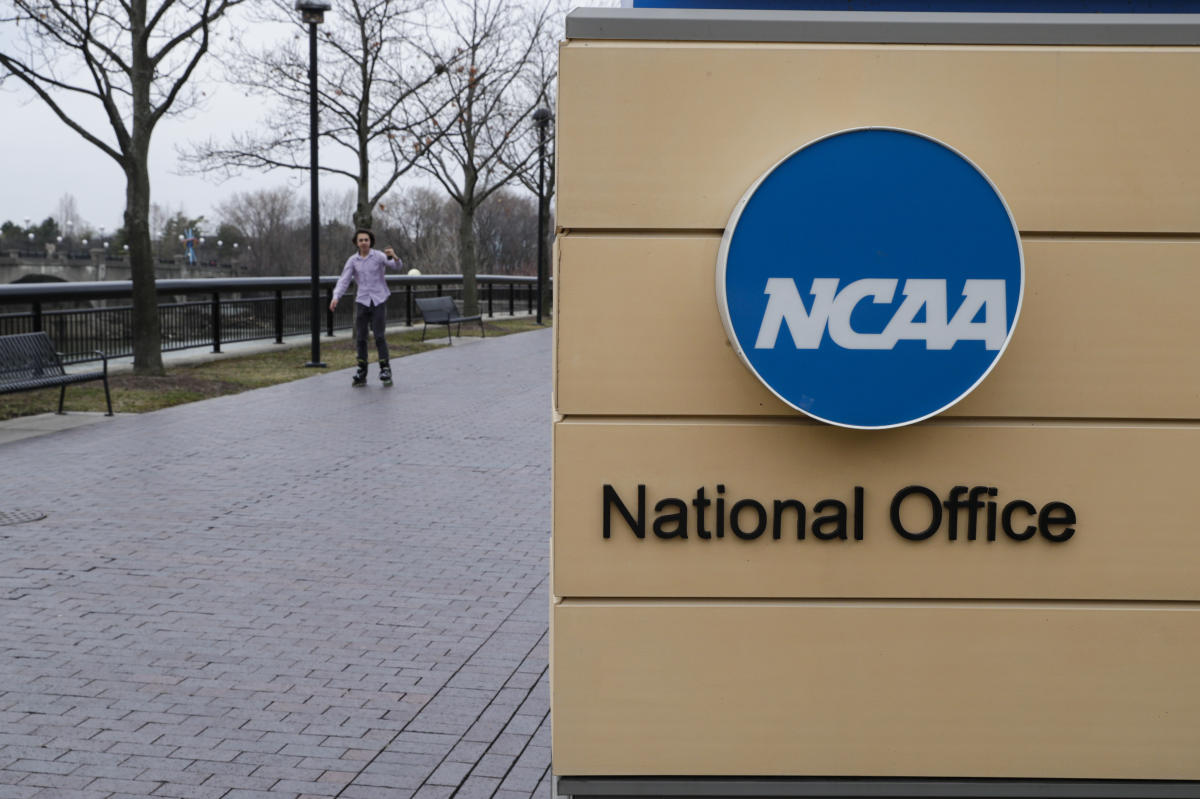
 sports.yahoo.com
sports.yahoo.com
In response to the court's ruling, Wake Forest AD John Currie said that he is against court storming.
'What NIL stands for: Now it’s legal': Ruling frees booster-backed groups to negotiate with recruits
Forced into yet another courtroom to defend its amateur model of athletics, the NCAA insisted that shelving its rules against name, image and likeness compensation being offered to recruits would make a difficult situation across the country even more chaotic. The NCAA lost that argument last...
Forced into yet another courtroom to defend its amateur model of athletics, the NCAA insisted that shelving its rules against name, image and likeness compensation being offered to recruits would make a difficult situation across the country even more chaotic.
The NCAA lost that argument last week when a federal judge granted a preliminary injunction in a lawsuit brought by the attorneys general of Tennessee and Virginia. The antitrust suit challenges NCAA rules against recruiting inducements, saying they inhibit athletes' ability to cash in on their fame.
Those who work for and with the booster-funded collectives that handle NIL deals with college athletes say lifting the rules will bring more clarity and simply make permissible what was once against the rules.
“I mean, people were already inducing recruits before this ruling,” said Jim Cavale, founder of Athletes.org, an burgeoning association for college athletes. “That was already happening. The only difference now is when they’re doing it, if somebody says, ‘Hey, is this within the rules?’ They can say, ‘Yes, it is.’”
He added: “Really, that’s what NIL stands for: Now it’s legal.”
The NCAA still has some rules regarding NIL compensation, which has ballooned into the millions for thousands of athletes. The schools themselves can't pay and school employees such as coaches and athletic department administrators can't be involved in the negotiation of NIL deals.
What exactly the ruling means is still being sorted out by the NCAA and its lawyers.
NCAA President Charlie Baker said in a letter to more than 1,100 member schools this week that the association planned to issue guidance soon. But the NCAA's only jurisdiction over collectives were rules banning boosters from being involved in recruiting and from offering money or something of value to attend certain schools.
Even then it was a school that was at risk of being punished if a collective broke those rules. That's what happened at Tennessee, which drew scrutiny from the NCAA for NIL deals between athletes and The Vol Club, managed by Spyre Sports Group marketing agency.
“There remains ambiguity even in the wake of this ruling, quite a bit of ambiguity and questions surrounding what can and cannot be done,” said Darren Heitner, a Florida-based sports law attorney who works with college athletes, collectives and agents on NIL contracts.
Faced with a wave of state laws clearing the way for college athletes to earn money based on their celebrity, the NCAA lifted its ban on in 2021 while making it clear that its approximately 500,000 athletes are still considered amateurs who cannot be paid to play. NIL wasn't meant to be a stand in for paying college athletes, but that's what it has become, with collectives carrying the load while trying to navigate NCAA rules.
“Everybody was doing work arounds,” said Michael Caspino, a California-based attorney who has reviewed NIL contracts from collectives for dozens of athletes, including Tennessee quarterback Nico Iamaleava.
Collective representatives have not been permitted to directly talk dollars with recruits, whether from high school or the transfer portal, or present them with contracts. Athletes were technically not allowed to sign contracts until after they enrolled.
“Now, you don’t have to worry about that," Caspino said. "That’s out the window. We can have as much direct negotiation and contact with anybody we’d like.”
Walker Jones, a former Mississippi football player who is the executive director of the Grove Collective, said the NCAA's “archaic enforcement structure” wasn't keeping up with the times. Athletes and their families want as much information as possible about NIL opportunities before deciding where to attend college.
“I can’t tell you how many phone calls I got from a parent of a student-athlete or an agent going, ‘Hey, I need to see a contract. Hey, I need to know what the deal is.’ And, unfortunately, I had to tell them, 'Sorry, I can’t send you a contract,'" Jones said.
Jones said the rules put everybody involved at a disadvantage.
“The student-athlete would have to kind of take the coach’s word for it, or a third-party conversation that somebody had with somebody else to funnel third-party information,” he said “And then when they showed up at that place, it wasn’t exactly what they were told or it didn’t meet their expectations.”
Jason Belzer, the founder of Athlete NIL, which helps operate numerous collectives, said the removal of NCAA rules should make collectives more accountable.
“Now collectives have to potentially put things in writing,” Belzer said. “And what I can tell you is that the vast majority of collectives, the vast majority, do not have all of the money in the bank that they need to fund their rosters when they sign a kid, much less offer an athlete something.”
Blake Lawrence, CEO of Opendorse, which works with more than 40 collectives across the country, said the organizations and the athletes can now speak freely. He cited an observation from a friend with a collective at an ACC school.
“He was like, ‘In what world do you sign your agreement to go somewhere and then find out how much you’ll get paid?’" Lawrence said. "Of course, NIL is different than employment but in general athletes deserve to know what they could earn in a certain market and a collective has the most insight on what those numbers are.”
Russell White, the president of the newly formed Collective Association, said he doesn't expect a huge surge in donations to collectives all over the country now that the NCAA is being forced to back off.
“I think that it’s not going to be this big, dramatic shift in the way money is spent or for the most part the budgets," White said. "But I do think there will be less anxiety, less nervousness around, you know, am I in a safe space here or am I pushing that line?”
For now, the next move is up to the NCAA. Helen Drew, a sports law professor at the University of Buffalo and director of the UB Center for the Advancement of Sport, said the speed of change across college athletics is dramatic.
“While it’s great for the students, the collegiate athletes, to have the opportunity to capitalize upon their own talents -- people keep referring to this as the wild, wild West -- I have personally seen and I expect to see ‘deals’ where students will be taken advantage of because they aren’t sophisticated consumers and they don’t have protections built in,” she said. "I do have some significant concerns for the collegiate athletes as this unfolds.”
CaptRenault
Well-known member
This article from the legal website, JD Supra, explains the possible implications of last week's court decision that, at least for now, overturned the NCAA's current rules on NIL.
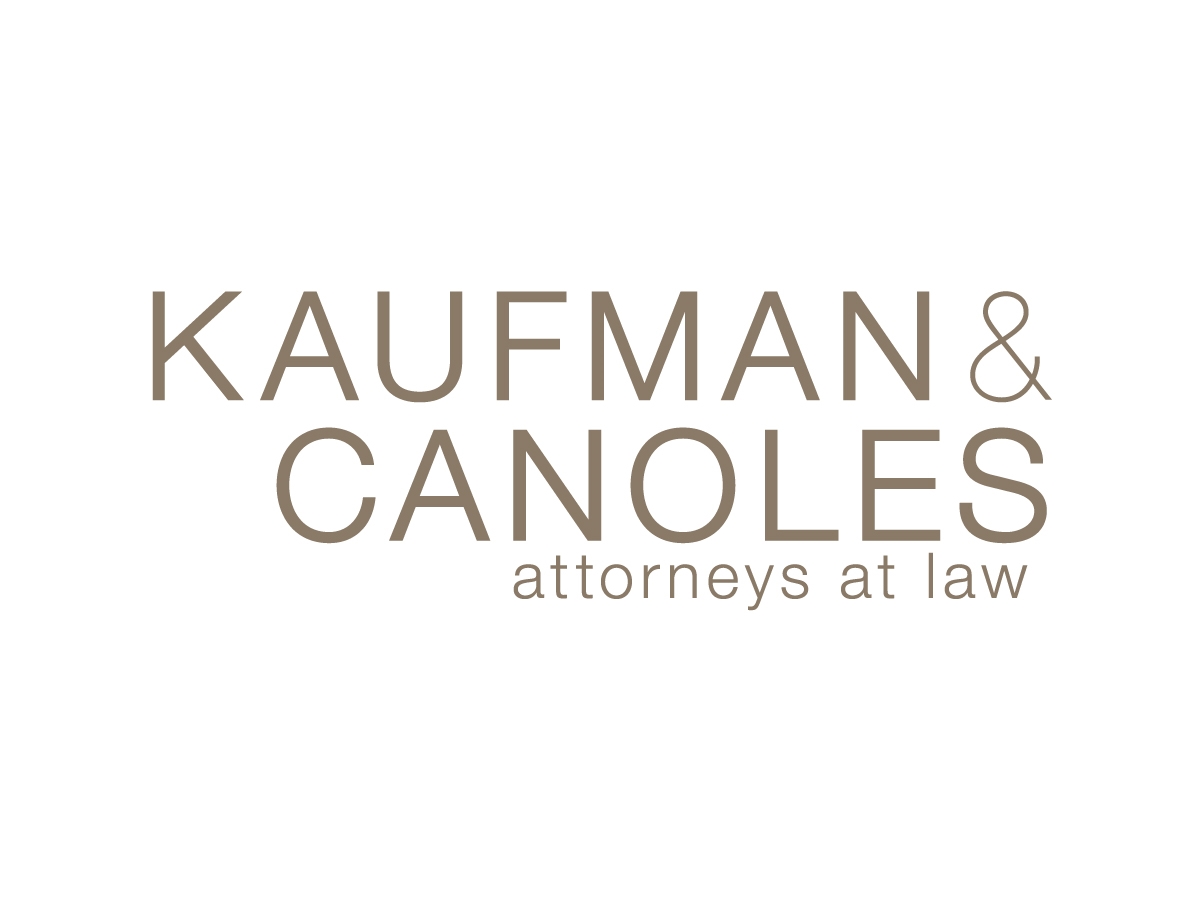
 www.jdsupra.com
www.jdsupra.com

Tennessee and Virginia v. NCAA: The Wild(er) West of NIL in College Sports | JD Supra
“The wild west” is by far the most frequent characterization used to describe college sports since NCAA v Alston, 141 S. Ct. 2141, paved the way for...
The Opinion:
...The Court began its analysis by clarifying that the NCAA’s rules restricting NIL negotiations were in fact commercial activity for purposes of the Sherman Act. This is a stark distinction between this case and relevant antitrust precedent that held that the Sherman Act did not apply to collegiate athletics. This distinction is also significant because it creates a line of demarcation between pre- and post-NIL era college athletics.
...The Court described the NIL-recruiting ban as “an agreement among competitors to refuse to discuss prices with recruits until after negotiations have resulted in the initial selection of a school.” The Court reasoned that such an agreement suppresses price competition, limiting negotiating leverage and the athletes’ knowledge of their true NIL value. This reasoning ultimately overshadowed the NCAA’s multiple attempts to demonstrate a pro-competitive rationale, such as the balance between academics and athletics or distinguishing college and professional athletics.
...The Court also suggested that if the NCAA truly possessed a unique interest in preserving a competitive balance, the organization’s best recourse would be to persuade Congress to provide an industry exemption from the Sherman Act. Congress has thus far remained silent on the issue.
...The court reasoned that the current restrictions not only hindered the earning potential of student athletes but restricted the NIL market in a manner that prevented athletes from discerning their true NIL value. To that end, the harm imposed by the NCAA interim guidelines was irreparable...
Immediate Impact:
...As a result of the Court’s decision, the NCAA is “restrained and enjoined from enforcing the NCAA Interim NIL Policy, the NCAA Bylaws, or any other authority to the extent such authority prohibits student-athletes from negotiating compensation for NIL with any third-party entity, including but not limited to boosters or a collective of boosters, until a full and final decision on the merits in the instant action.” It is noteworthy that the opinion does not address the NCAA’s prohibition on “pay for play.” Accordingly, there is a presumption that compensation must still be paid in exchange for use of an athlete’s name, image, or likeness. However, with the preliminary injunction in place, it will be difficult to discern whether pre-recruitment NIL negotiations are truly centered around the use of the athlete’s NIL. Moreover, the potential cost of enforcement to investigate and identify improper inducements that do not have the requisite exchange of NIL usage will be exceedingly high...
What to Expect long term:
As for long term effects, if the Plaintiffs ultimately prevail, the scope of the NCAA’s authority over NIL usage will be severely diminished and replaced with an NIL market centered around free market principles. It is hard to discern who the winners and losers are in that scenario. In fact, the court acknowledged that a free-market NIL system may not actually benefit collegiate athletes, but it will reveal their true market value free from the NCAA’s allegedly anticompetitive restrictions.
...Ultimately, the NCAA is now forced to go back to the drawing board to reconsider how, if at all, they will enforce NIL regulations. Universities will need to weigh the potential benefit of working with collectives to leverage NIL recruitment against the underlying challenges of navigating the less restrictive NIL market. Finally, for the moment, collegiate athletes are free to explore their options and discover their true NIL potential in the wild west.
...There may also be a shift in state-wide NIL legislation. In the wake of the NCAA’s NIL Interim policy, many states passed NIL legislation that resembled the NCAA’s guidance. If this case ultimately ends the NIL recruitment ban, states may be inclined to amend their current legislation to gain a competitive edge over other states who do not take advantage of the opportunity to funnel top-tier talent towards their colleges and universities.
Many sources are prematurely and hyperbolically depicting this opinion as the end of the NCAA. While it will certainly change things, the NCAA is not completely out of options. In addition to the anticipated appeal, many expect the NCAA to make one final plea to Congress to intervene with federal legislation regulating collegiate NIL markets. In fact, the Court was clear that a potential solution that would solve the NCAA’s current antitrust dilemma would be an industry exemption from the antitrust standards...
...Ultimately, the NCAA is now forced to go back to the drawing board to reconsider how, if at all, they will enforce NIL regulations. Universities will need to weigh the potential benefit of working with collectives to leverage NIL recruitment against the underlying challenges of navigating the less restrictive NIL market. Finally, for the moment, collegiate athletes are free to explore their options and discover their true NIL potential in the wild west.
CaptRenault
Well-known member
I'm old enough to remember when the Amateur Athletic Union (AAU) controlled sports like elite-level Track & Field in the United States.. It had more power than the U.S. Olympic movement and it spent a lot of money, time and effort in monitoring, investigating and punishing elite, post-college, "amateur" T&F athletes for taking payments from the athletic shoe companies Adidas and Puma. The NCAA was no help to the athletes--it controlled them under its own amateur rules and it fought the AAU to try to control them even after they had graduated.
American T&F athletes often had to work to earn a living while trying to train for the Olympics and other international competitions in which they had to compete against fake "amateurs" from Soviet bloc countries. Gradually then suddenly, the amateur model of track and field fell apart and a day of reckoning arrived for the AAU in the mid 1970s. The Olympic movement and various international sports federations recognized the eligibility of professional athletes to participate in the Olympics and various world championships. The AAU still exists but its main role is to manage the business of some organized sports for kids. It still plays a role in sports but nothing like the role it once had.
The NCAA is like the AAU of the 1960s and early 70s. It has grown too powerful, too rich, too fat and soon, in the face of court decisions and lawsuits, it may evolve into something like the AAU--mostly irrelevant. If it is going to retain an important role in the business of college sports, it needs to act fast and it has a limited range of options.
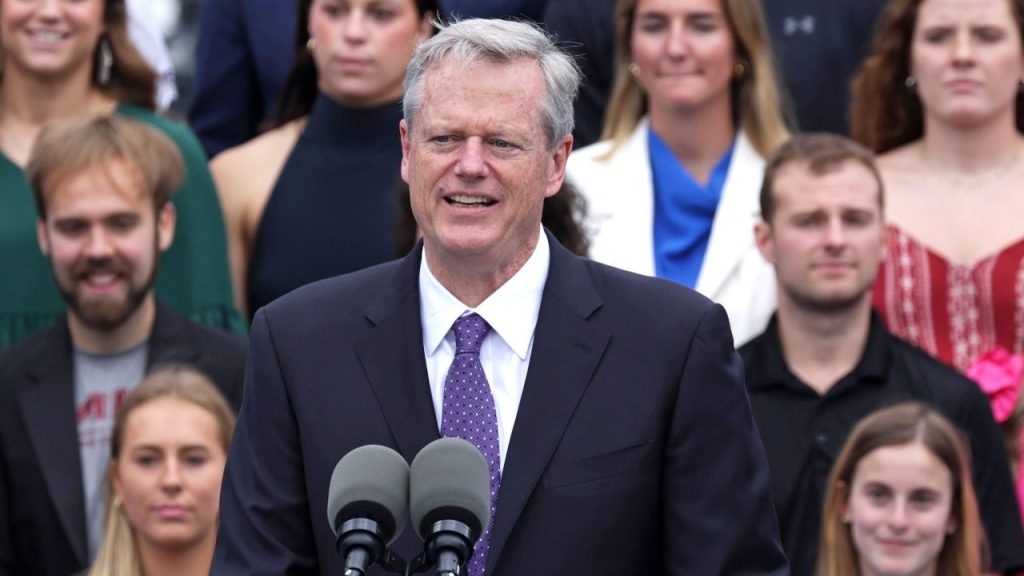
 www.sportico.com
www.sportico.com
American T&F athletes often had to work to earn a living while trying to train for the Olympics and other international competitions in which they had to compete against fake "amateurs" from Soviet bloc countries. Gradually then suddenly, the amateur model of track and field fell apart and a day of reckoning arrived for the AAU in the mid 1970s. The Olympic movement and various international sports federations recognized the eligibility of professional athletes to participate in the Olympics and various world championships. The AAU still exists but its main role is to manage the business of some organized sports for kids. It still plays a role in sports but nothing like the role it once had.
The NCAA is like the AAU of the 1960s and early 70s. It has grown too powerful, too rich, too fat and soon, in the face of court decisions and lawsuits, it may evolve into something like the AAU--mostly irrelevant. If it is going to retain an important role in the business of college sports, it needs to act fast and it has a limited range of options.

How to Resurrect the NCAA as Amateurism Lays Dying
Charlie Baker's NCAA is on the verge of its system of amateurism collapsing. He has a few options on how to move the NCAA forward.
March 20 will mark the 40-year anniversary of the oral argument in NCAA v. Board of Regents, the U.S. Supreme Court decision where the late Justice John Paul Stevens famously wrote:
“The NCAA plays a critical role in the maintenance of a revered tradition of amateurism in college sports. There can be no question but that it needs ample latitude to play that role …”
That language might as well be 400 years old.
...Last Friday NCAA president Charlie Baker announced his organization would suspend enforcement of NIL-related rules for collectives. It followed U.S. District Judge Clifton Corker ordering the NCAA to lift those rules. If NIL isn’t already an unregulated market, that era nears.
Amateurism isn’t dead—yet. The NCAA still prohibits schools from paying their players and still doesn’t allow players to share in TV money. Although the association has waived the white flag on NIL and transfer restrictions, it insists college athletes aren’t pros.
That may be true, but it’s hard to escape the feeling the NCAA is rearranging deck chairs as amateurism sinks.
The basic legal problem is NCAA members are competing businesses and antitrust law doesn’t like competitors joining hands to restrain how they compete. When colleges and conferences prevent themselves from allowing athletes to receive their market value for their labor, NIL, broadcasting fame and other opportunities to earn money, those colleges engage in a form of price-fixing.
For years, courts ascribed to the “revered tradition of amateurism” as an instruction from the land’s highest court to treat NCAA rules with deference. That, in turn, directed judges to apply a relaxed standard of review to NCAA rules that, in other contexts, would face rebuke.
That all changed in Alston, a case that ironically had nothing to do with paying players to play sports or NIL, but instead the more peripheral topic of athletes’ education-related expenses. The Court clarified Justice Stevens’ remarks from 1984 were mere dicta—commentary that is not essential to the holding—and had no bearing on whether NCAA compensation rules are legal. In his concurring opinion, Justice Brett Kavanaugh described the NCAA and its members as a cartel and blasted their business model as one that “would be flatly illegal in almost any other industry in America.”
Unless the NCAA embraces major reforms, it’s likely a matter of time before remaining amateurism rules are deemed illegal...
...NCAA president Charlie Baker has a few options.
First, he could gamble that the losing will end. Even the coldest streaks eventually stop. Baker could surmise while the NCAA may lose on NIL, transfers and conferences sharing TV money with players, the fundamental rule that colleges can’t pay athletes for their labor is worth defending. It’s the rule at the heart of college sports.
Baker knows at least one judge sees the wisdom of amateurism. In Bewley v. NCAA, former Overtime Elite players contend their league payments were NIL. U.S. District Judge Robert Gettleman recently wrote the NCAA rendering ineligible athletes who already turned pro promotes the association’s “unique product” of “college sports.” The case is on appeal to the U.S. Court of Appeals for the Seventh Circuit, so the NCAA could still lose. But maybe there are more judges like Gettleman out there who aren’t yet ready to wipe out amateurism.
Still, the risk for Baker is that Bewley is an outlier and the losses keep piling up. And instead of the NCAA deciding its future, judges will tell the NCAA its future.
As a second option, Baker could keep pressing Congress to pass something of a miracle bill—one that exempts the NCAA from antitrust scrutiny, declares college athletes are not employees, sets a national NIL standard and preempts any conflicting state laws. This is the same Congress that has held 11 hearings on NIL since 2020 and not one has led to any bill advancing out of committee. Even if Congress passes and the president signs some sort of federal college sports law, it would face Constitutional challenges on Equal Protection Clause and preemption grounds and likely toil in court for years.
The third option has two parts. First, Baker leads the NCAA to radically change its system of player compensation rules so it complies with antitrust, labor, employment, intellectual property, civil rights (Title IX) and all other laws. Second, Baker negotiates litigation settlements with thousands of player-plaintiffs. To work, the third option would need to be implemented before the NCAA incurs more losses in court or at the NLRB.
That’s a lot for Baker to do and do quickly. But the former Massachusetts governor is open to evolutionary reforms. His proposal last year to let Division I colleges pay athletes for their NIL and to create a super league that pays athletes at least $30,000 a year demonstrates he’s willing to think big.
Option three would involve allowing conferences to set their own rules on player compensation, including whether the athletes are employees and ought to get a cut of TV and other licensing money.
Conference empowerment is crucial to any reform because the Supreme Court has said as much.
Last edited:
deacdixieboy
Well-known member
- Joined
- Mar 25, 2011
- Messages
- 14,244
- Reaction score
- 6,901
CaptRenault
Well-known member
Last week Congress held yet another hearing related to legislation that would throw the NCAA a lifeline consisting of antitrust protection and rules that would protect the status of athletes as students and not employees. Such legislation would not necessarily end the current chaos but it would strengthen the NCAA's ability to regulate NIL and transfers and maybe end its vulnerability to more antitrust lawsuits.
Senator Cruz predicted that the chances of Congress giving the NCAA a lifeline were 50-50, though that seems overly optimistic, given that Congress can barely agree on anything and this is a presidential election year. I haven't heard either Biden or Trump say anything about passing legislation to save the NCAA and college sports as we know it.
Now there is another issue that could decrease the likelihood of Congress helping the NCAA, which is the NCAA's stance on allowing trans women to compete in women's sports. Like the International Olympic Committee, the NCAA follows the rules of governing sports federations to determine whether a trans woman is eligible to compete against women. So Penn swimmer Lia Thomas, who first competed on the men's swim team at Penn, was allowed to compete on the women's team and subsequently win an NCAA Division I women's swimming championship in the 500 yard freestyle race.
A group of current and former female swimmers has filed a federal lawsuit against the NCAA to stop it from allowing athletes born male to compete as women. Whatever one thinks about the pros and cons of allowing former males to compete as females, the NCAA's stance on the issue will not help it get the relief it wants from Congress. Though the issues of rules on trans athletes and antitrust relief for the NCAA are not directly related, there are members of Congress (mostly on the right) who will oppose helping the NCAA with anything as long as the NCAA allows trans women like Thomas to compete in women's sports. Anything could happen but right now it looks like another "L" for the NCAA.
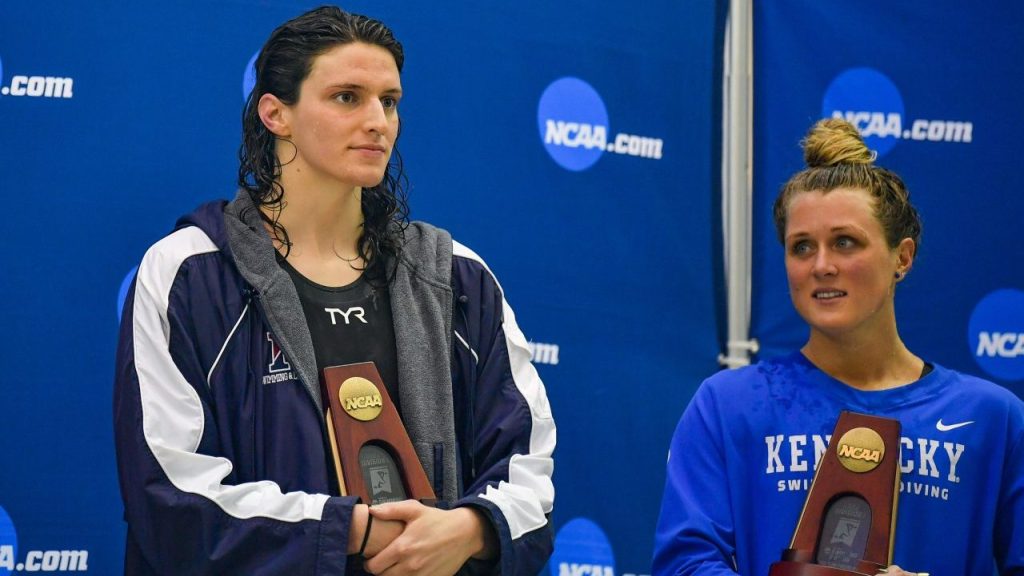
 www.sportico.com
www.sportico.com
Senator Cruz predicted that the chances of Congress giving the NCAA a lifeline were 50-50, though that seems overly optimistic, given that Congress can barely agree on anything and this is a presidential election year. I haven't heard either Biden or Trump say anything about passing legislation to save the NCAA and college sports as we know it.
Now there is another issue that could decrease the likelihood of Congress helping the NCAA, which is the NCAA's stance on allowing trans women to compete in women's sports. Like the International Olympic Committee, the NCAA follows the rules of governing sports federations to determine whether a trans woman is eligible to compete against women. So Penn swimmer Lia Thomas, who first competed on the men's swim team at Penn, was allowed to compete on the women's team and subsequently win an NCAA Division I women's swimming championship in the 500 yard freestyle race.
A group of current and former female swimmers has filed a federal lawsuit against the NCAA to stop it from allowing athletes born male to compete as women. Whatever one thinks about the pros and cons of allowing former males to compete as females, the NCAA's stance on the issue will not help it get the relief it wants from Congress. Though the issues of rules on trans athletes and antitrust relief for the NCAA are not directly related, there are members of Congress (mostly on the right) who will oppose helping the NCAA with anything as long as the NCAA allows trans women like Thomas to compete in women's sports. Anything could happen but right now it looks like another "L" for the NCAA.

NCAA Trans Policy, Title IX Suit May Hinder Congress on NIL
Riley Gaines and other athletes sue the NCAA, the University of Georgia and others over the eligibility of transgender athletes.
The NCAA, college sports’ serial defendant, faces another federal lawsuit as more than a dozen female athletes sued the association, the University of Georgia and other defendants Thursday for alleged violations of Title IX, the Equal Protection Clause and the right to bodily privacy, stemming from the eligibility of transgender athletes.
The complaint, filed in a Georgia federal court, demands that the NCAA pull the eligibility of transgender female athletes competing in women’s events, and redistribute awards, credits and other achievements in which those athletes compete. The plaintiffs hope their case is eventually certified as a class action on behalf of women who are past, current or future NCAA athletes.
Former University of Kentucky All-American swimmer and current political commentator Riley Gaines is among the athletes who argue the NCAA violates the law by permitting transgender athletes. The NCAA permits transgender athletes on a sport-by-sport basis in alignment with the Olympics and based on determinations by national governing bodies for each sport. The NCAA says it tries to balance “fairness, inclusion and safety for all who compete.”
The lawsuit details the experience of Gaines competing in multiple events against Penn swimmer Lia Thomas, the source of much attention as a transgender athlete. Thomas and Gaines tied for fifth in the 200-yard freestyle event at the 2022 NCAA swimming and diving championships, after which Gaines began to publicly campaign against trans athletes competing in women’s sports.
Since then, her activism has broadened into a full-throated and increasingly political condemnation of transgenderism. In early 2023, Gaines publicly endorsed the Republican presidential nomination of Florida Gov. Ron DeSantis after appearing in a campaign ad for former College Football Hall of Fame inductee Herschel Walker, in his failed 2022 runoff bid for the U.S. Senate seat in Georgia. In addition to testifying on Capitol Hill, Gaines also advocated for Ohio House Bill 68, which would prohibit trans athletes from participating in women’s sports as well as ban doctors from providing gender-affirming treatment.
Core to the legal argument made by Gaines and her co-plaintiffs is that since Title IX guarantees men and women equal opportunities to compete in athletics, allowing transgender female athletes to compete deprives other women athletes. The plaintiffs also claim violations of equal protection of the law, alleging they and other women are being treated unfairly...
BlackjackMc
Gil McGregor
It is difficult for me to believe that the government helping the NCAA in any manner is good for college sports. In the short time the NCAA was given to determine the eligibility of transfers, they demonstrated an inability to make decisions in a timely, fair and effective manner.
- Status
- Not open for further replies.
